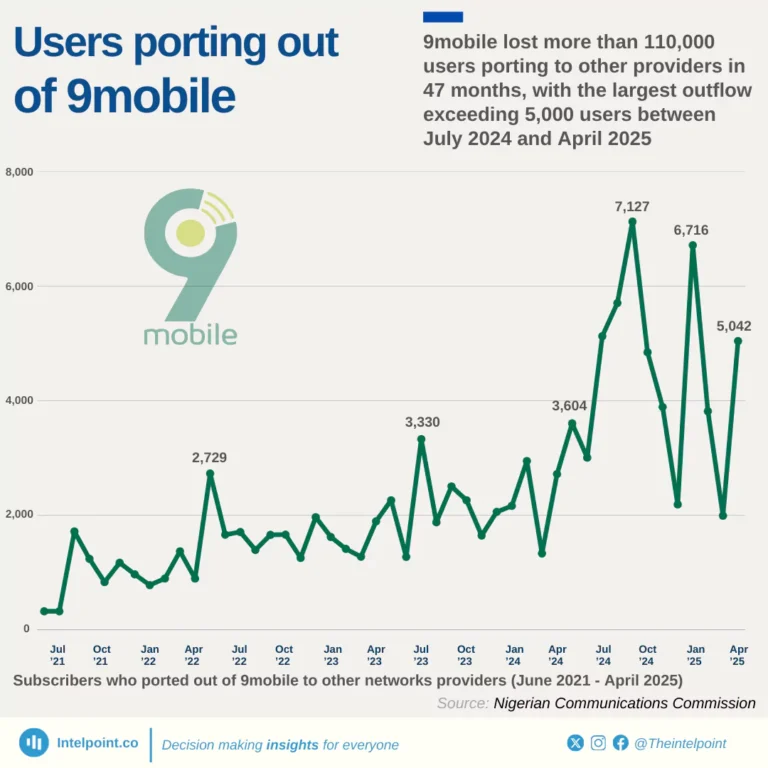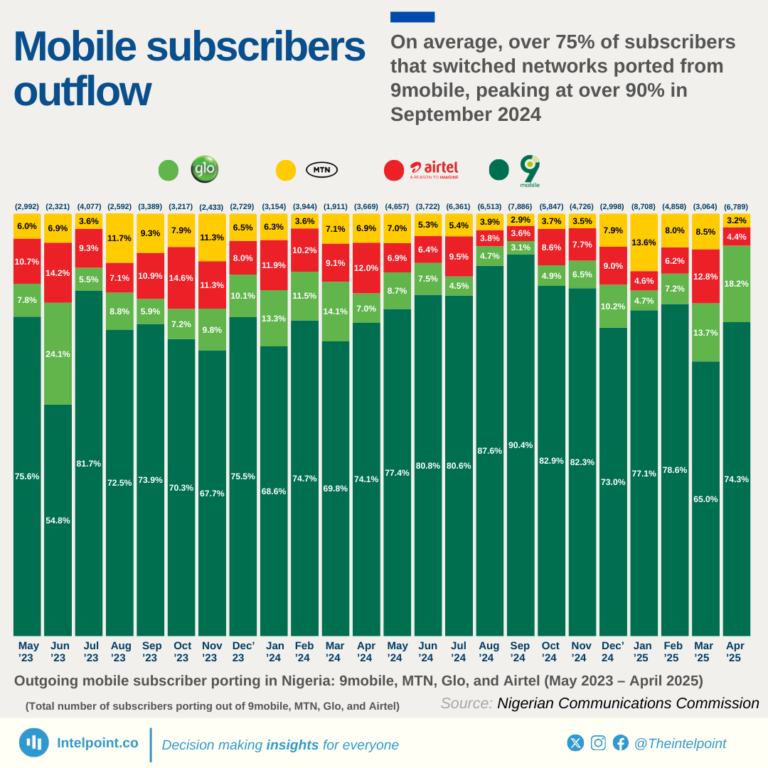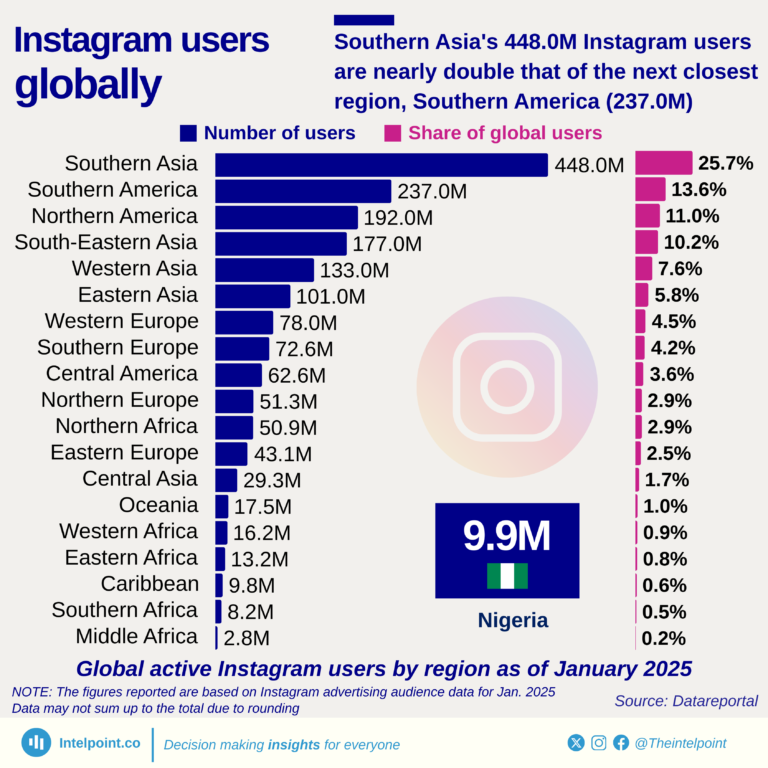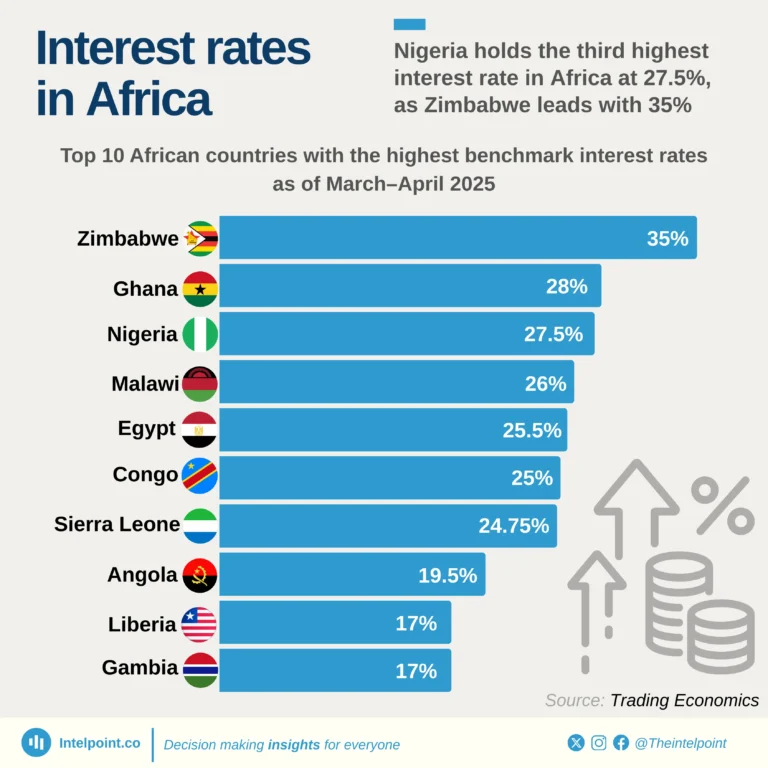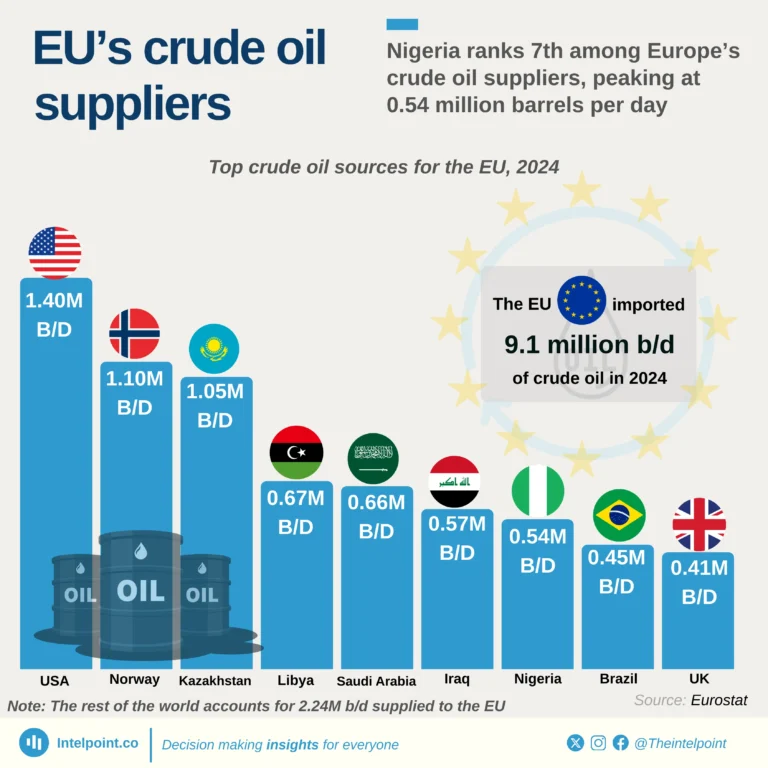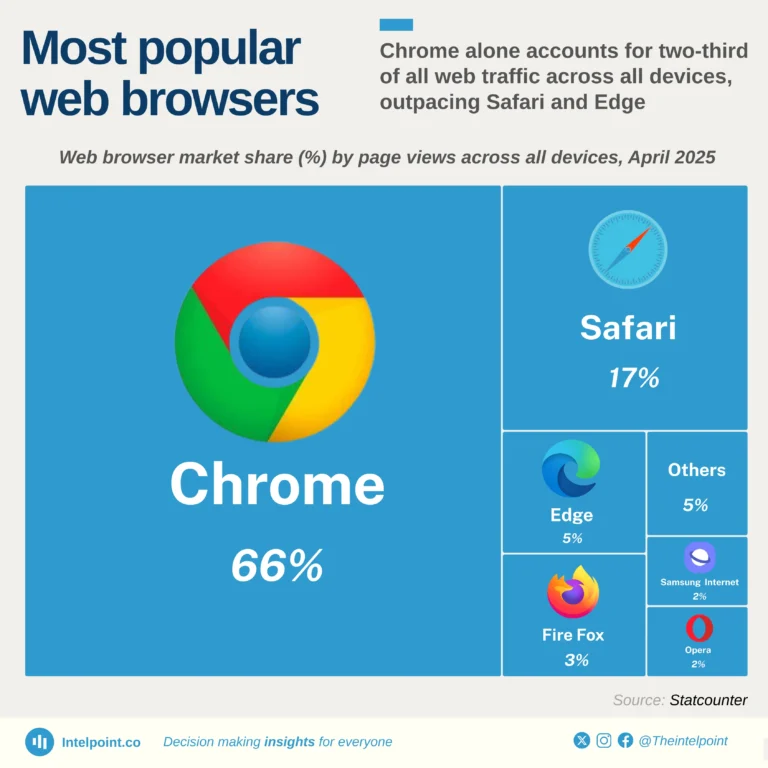
In 2023, the US immigrant (foreign-born) population reached an estimated 47.83 million, a 3.6% increase from 46.18 million in 2022, with Mexico leading as the top country of birth for immigrants, contributing nearly 23% of the total.
India, China, and the Philippines follow, with significant communities from El Salvador, Cuba, and Guatemala.

In H1 2024, Nigeria's FDI accounted for just 2.5% of the country's $5.98 billion total capital imports, down from 14% in H2 2023 and 6.2% in H1 2023.
This highlights a shift towards other capital inflows like portfolio investments.
Portfolio investments rose significantly to $3.48 billion, rebounding from $397 million in H2 2023 and $756 million in H1 2023.

Nigeria's FDI has dropped significantly. From an average of $417m per quarter (2013-2015) to less than $100m (Q1 2022 - Q2 2024), it hit its lowest ($29.8m) in Q2 2024.
The trend shows declines since 2013, with key fluctuations and a shift in investment priorities.

As of 2022, the top five African countries indebted to the World Bank — Nigeria, Egypt, Ethiopia, Kenya, and Tanzania — accounted for 46% of the continent's outstanding debt with the institution.
Forty-eight African countries collectively owed around $125 billion, representing 31% of the total global debt of $408 billion. These are the top ten countries from 1970 to 2022.

MultiChoice Group experienced a 31% decline in revenue from Nigeria in 2024 compared to 2023. Nigeria represented 35% of the group's Rest of Africa (RoA) subscription revenue in 2024, down from 44% in 2023. South Africa's contribution to subscription revenue grew from 56.2% in 2023 to 58.4% in 2024. Meanwhile, Nigeria's share of the total revenue dropped from 18.7% in 2023 to 13.9%.

India has been the World Bank's largest debtor for over 50 years, with a debt of $38.3 billion as of 2022.
Five Asian nations — India, Indonesia, Bangladesh, Pakistan, and China — owe a combined $111.2 billion, or 27% of the World Bank’s total debt.
Nigeria, Africa's largest World Bank debtor, ranks 10th, with nearly #14 billion in debt.

Nigeria's debt to the World Bank grew from $182 million in 1970 to nearly $15 billion by 2023 – an 8,100% increase.
Between 2005 and 2023, it rose by 705%, highlighting Nigeria's reliance on World Bank financing for development.
As of Q1 2024, Nigeria owed $15.59 billion, 37% of its external debt.

Data from 11 Nigerian banks in H1 2024 reveals that 10 of them experienced profit growth, showcasing resilience in the sector. Leading the way is GTCO with a remarkable ₦905.6 billion profit, representing a 223% YoY increase.
Zenith Bank follows closely with ₦578 billion, reflecting 98% growth. Jaiz Bank, while having the smallest profit at ₦11.28 billion, posted a strong 199% rise. UBA saw a decline, with its profit being 16% lower than in H1 2023.

In 2023, Nigeria saw a 17% reduction in petrol supply as imports fell by nearly 14% from 23.5 billion litres in 2022 to 20.3 billion litres.
The removal of the fuel subsidy in May 2023 led to higher prices and lower demand, especially in the second half of the year.
The Dangote refinery’s rising output could shape future supply.

Nigeria’s population growth has outpaced its economic performance. From 1960 to 2023, the population increased from 44.9 million to an estimated 223.8 million, putting immense pressure on resources.
The country's GDP peaked at $574.2 billion in 2014 but dropped to $362.8 billion in 2023.
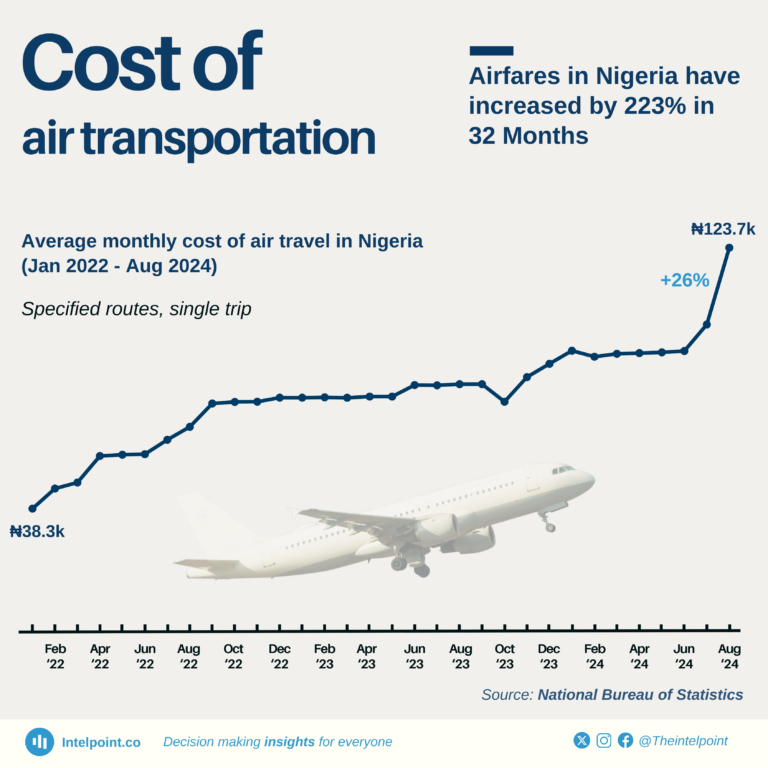
Airfares in Nigeria have surged by 26% just one month after the Nigerian Airspace Management Agency proposed an 800% increase in navigational charges — the largest spike in 32 months.
From an average of ₦38,200 in January 2022 to ₦123,700 in August 2024, costs have more than tripled.
Further price hikes could raise concerns about air travel affordability nationwide.
